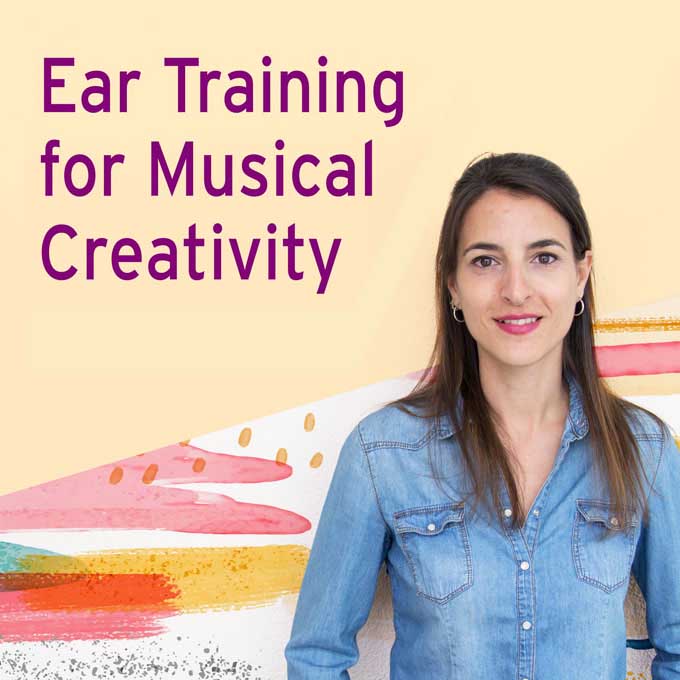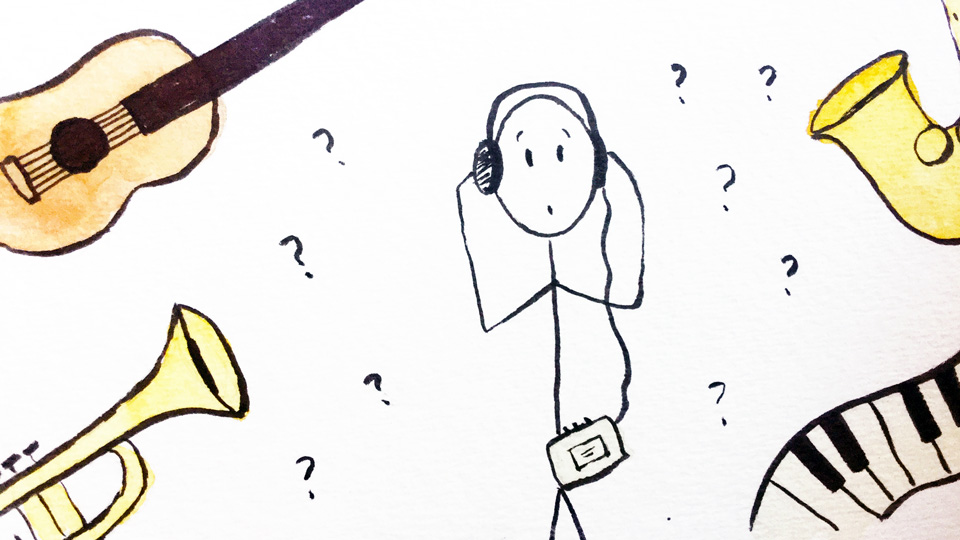Hello David,
I played for a number of years as a teenager but grew frustrated. My main source of frustration was that I couldn't play anything at all by ear. Even very simple stuff I just couldn't hear.
I have tried many different methods of ear training over the years and I'm totally confused. I have tried interval recognition apps, functional ear training and even a perfect pitch course. But I have yet to recognize a single note when listening to real music! Can you give me any guidance?
Cheers, Matt
David's response:
Hi Matt,
I understand your frustration completely. Honestly your experience is very common. I don't think I've ever met a single musician who actually learned to play by ear using apps and interval training. As you've discovered for yourself, getting better scores on interval quizzes has almost nothing to do with understanding real music.
But understanding music by ear is something everyone can do. And it's such an essential part of IFR that you're definitely going to learn this ability. Here's how we're going to do it:
1) Studying the sounds melodically. It's a mistake to treat music as a series of unrelated intervals. In IFR, we don't focus on interval relationships between random notes. We focus instead on the sound of each note relative to the overall key of the music. Each note of the major scale produces a very particular sound which you already recognize in the music all around you. This is how our ear works naturally, and this is how you are able to appreciate music in the first place. So you already know these sounds intimately. You just need to take the time to clarify which sound is which.
2) A fully integrated music practice. Ear training is not a separate activity. The moment you relegate ear training off to its own little island, divorced from your playing and your creativity, you're already doomed to fail. It's like saying that part of the time you're going to play your instrument, and the other part of the time you're going to actually listen to the sounds. In IFR, ear training is integrated into every note we play, so that our jamming BECOMES our ear training!
 3) Exploring the sounds creatively. When most people think of ear training, they imagine sitting in a classroom or using an ear training app that puts them in the passive role of just listening to sounds and trying to identify them. But we humans need to examine things for ourselves in order to understand them. We need to be able to pick things up and turn them around in our hands, and look at them from all different angles. In music, this is exactly what we do when we improvise. The IFR creative exercises give you the opportunity to really get to know each note of our musical system for yourself, and this is the key to recognizing these sounds by ear.
3) Exploring the sounds creatively. When most people think of ear training, they imagine sitting in a classroom or using an ear training app that puts them in the passive role of just listening to sounds and trying to identify them. But we humans need to examine things for ourselves in order to understand them. We need to be able to pick things up and turn them around in our hands, and look at them from all different angles. In music, this is exactly what we do when we improvise. The IFR creative exercises give you the opportunity to really get to know each note of our musical system for yourself, and this is the key to recognizing these sounds by ear.
4) Using the power of beautiful melodies. In the same way that words combine to make sentences, musical notes combine to make melodies. And very often, these melodies are even more memorable and easier to recognize than the notes! So another huge part of being successful with ear training is to study not only the individual sounds but also beautiful melodies that illustrate the melodic possibilities of each note. It's these melodies that will help you truly understand the meaning of each note of our musical system. And that's how these sounds will become truly yours.
All of this is exactly what we do in our video course Ear Training for Musical Creativity. So if you're not sure how to get started, this course would be a great place to start.
Ear Training for Musical Creativity
 In this course you will learn to recognize the seven notes of the major scale by ear in the music all around you, and you'll learn a way of practicing that integrates ear training into every note you play. The course includes video lessons, audio lessons, self-test tracks and step-by-step creative exercises that integrate all of the principles described above into a beautiful and enjoyable daily practice.
In this course you will learn to recognize the seven notes of the major scale by ear in the music all around you, and you'll learn a way of practicing that integrates ear training into every note you play. The course includes video lessons, audio lessons, self-test tracks and step-by-step creative exercises that integrate all of the principles described above into a beautiful and enjoyable daily practice.
I believe that this course will be one of those "before and after" moments in your life, changing the way you think about music and opening many new doors for you creatively. Click HERE for full details.
